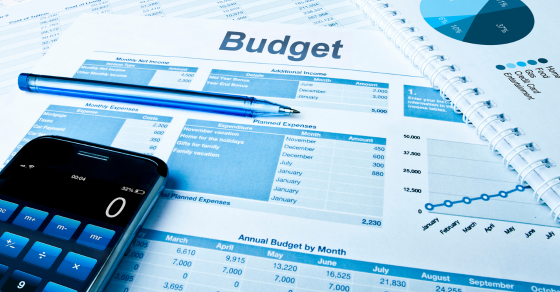
As a business owner, you already know the importance of setting a budget to help you manage income, expenses, and investments. But did you know that budgets are living documents that need regular review and revision to stay relevant? Whether unexpected expenses come up, your business takes a different direction, or market conditions change, keeping your budget flexible and up-to-date is essential.
In this article, we’ll explain why reviewing and revising your budget regularly is crucial for your business and give you some tips to make the process easier and more effective.
Stay on Track with Financial Goals
Your budget helps you stay focused on your financial goals—increasing profits, managing debt, or saving for future investments. But the business landscape is constantly changing. If you’re not reviewing your budget, you may miss signs that you’re veering off course. Regular reviews help you catch these discrepancies early so you can make adjustments before minor issues become big problems.
Adapt to Unexpected Expenses
No matter how thorough your budgeting process is, unexpected expenses can and will happen. Maybe your equipment breaks down, or you must hire additional staff to meet demand. If you don’t have a process for revisiting your budget, these unexpected costs can throw your entire financial plan off balance. Regularly reviewing your budget can identify areas where you can make adjustments to cover these expenses without derailing your business.
Respond to Shifting Market Conditions
Market conditions are constantly changing—sometimes faster than you expect. Whether it’s inflation, new competitors entering the market, or shifts in customer preferences, your budget needs to reflect these external changes. Regularly reviewing your budget lets you adjust pricing, marketing spend, or operations to respond to market changes.
There’s no one-size-fits-all answer here, but reviewing your budget monthly or quarterly is generally a good idea. Monthly reviews allow you to monitor cash flow closely and make minor adjustments before issues grow. Quarterly reviews are a great time to assess bigger-picture trends and adjust your long-term strategy.
For businesses experiencing rapid growth or change, you may even want to consider more frequent reviews—especially if new expenses are cropping up or revenues fluctuate significantly.
Compare Budgeted vs. Actual
Results One of the most critical steps in your budget review is comparing what you planned (your budget) to what happened (your financial statements). Look at your revenues and expenses to see if you’re over or under budget in any areas. If you notice significant differences, dig deeper to figure out why. Is a particular product underperforming? Are you overspending in certain areas? Understanding the “why” behind the numbers will help you make informed decisions about where to adjust.
Adjust for Seasonal or Cyclical Patterns
If your business is seasonal or has natural ups and downs throughout the year, you’ll want to adjust your budget to account for these patterns. For example, retail businesses may see a surge in sales during the holiday season but slower months in the summer. Ensure your budget reflects these fluctuations so you can manage cash flow more effectively during the slower periods.
Revisit Your Assumptions
When you first created your budget, you made certain assumptions—about costs, revenue growth, market conditions, and more. As your business evolves, these assumptions may no longer hold. Take a close look at whether the assumptions you made at the beginning of the year still apply. If not, revise your budget to align with the new reality of your business.
While business owners need to be hands-on with their budgets, sometimes the financial landscape gets complicated. A CPA or financial advisor can help you navigate the process of reviewing and revising your budget by providing expert advice, offering tools to track financial performance, and giving you a better understanding of how to align your budget with your business goals.
Your budget is more than just a financial plan—it’s a dynamic tool that helps you steer your business toward success. Regularly reviewing and revising it, you’ll stay ahead of financial challenges and be better equipped to meet your long-term goals. And remember, a little professional guidance can go a long way.
Receive Free financial tips & Tax Alerts!
"*" indicates required fields
It’s not uncommon for an estate plan to contain multiple trusts. They can enable you to hold assets for and transfer them to beneficiaries, avoid probate, and possibly reduce estate…
Members of the sandwich generation — those who find themselves simultaneously caring for aging parents while supporting their own children — face unique financial and emotional pressures. One critical yet…
If you inherit assets after a loved one passes away, they often arrive with a valuable — but frequently misunderstood — tax benefit called the step-up in basis. Below is…